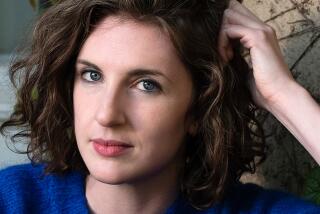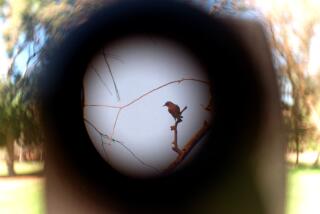Critic’s Notebook: In Discover Mode
For me, summer reading has always been about freedom. Not the freedom to dumb down with mindless entertainment but the freedom to wise up, to be ambitious, to pursue the passions that, during the rest of the year, often take a backseat to the necessities of daily life.
As a kid, I looked forward to summer for months in advance, not so much because I would be free of school (although that was part of it) but because I would have 13 undisturbed weeks to choose my own reading, to explore the books I wanted, rather than those that someone else assigned. Kerouac, Camus, Didion, Walker Percy, Philip Roth and Bernard Malamud: I discovered all of them in the summer, holed up in the heat, reading as if my life depended on it.
And it did. When I think back on my reading life, those are the moments that resonate: long afternoons stretching out into evening, time elastic and nothing to do but give myself over to the rushing power of words.
I first began to understand this in 1972, at the end of fifth grade, when my classmates and I were given the opportunity to buy our summer reading books through school. While most of my friends dutifully went through the order form looking for the shortest titles, I did just the opposite, ordering dozens of books, length not an issue: “David Copperfield,” “Captains Courageous,” “Treasure Island,” “The Once and Future King.”
Somehow, in the midst of all these classics, I stumbled upon a classic of a different sort. Tucked in with the other books was a novel, and a writer, I’d never heard of: “Cat’s Cradle” by Kurt Vonnegut.
“Cat’s Cradle”? I marvel at it now, wondering how Vonnegut made it on that list. I don’t know why I bought it, except that, at 11, I was a science fiction reader, and I must have been drawn to the description, to the idea of Ice-Nine and crazy scientists, to a book about the end of the world.
I still remember pulling that red Dell paperback out of the box, puzzling over its weirdly comic cover. I still remember wondering about all those tiny chapters, 127 of them in a 191-page book.
Suddenly, “David Copperfield” didn’t seem so exciting. And while I’ll admit now (as I never would have then) that I didn’t understand a lot of it, when I finished “Cat’s Cradle,” I was hooked. There was something about Vonnegut’s gentle fatalism, his embrace of the absurd, that spoke to me, even though I didn’t have the language to put it in such terms. I had found a kindred spirit, which is one of reading’s great satisfactions: the reassurance that we are not alone.
This is why I think of summer reading not in terms of escape but as the source of a joyous multitude of possibilities. The options are endless, limited only by imagination and time. This summer, my reading list includes “Comeback,” “Butcher’s Moon” and “Backflash” by Donald Westlake, writing as Richard Stark, the most recent Parker novels reissued by the University of Chicago Press; and Milton Rokeach’s “The Three Christs of Ypsilanti,” an inquiry into schizophrenia and religious obsession published in 1964 and back in print from NYRB Classics.
What do these books have in common? Nothing much, except they speak to me. In the end, this may be the most important thing that summer reading has to offer: a way to connect or to reconnect with ourselves.
More to Read
Sign up for our Book Club newsletter
Get the latest news, events and more from the Los Angeles Times Book Club, and help us get L.A. reading and talking.
You may occasionally receive promotional content from the Los Angeles Times.







